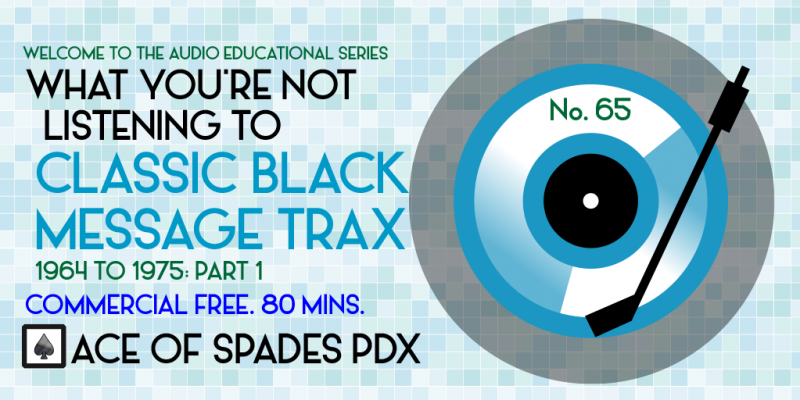Podcast: Play in new window | Download | Embed
The first of three programs this month that focus on the original Black Power and Black Pride movements, with commentary by special guest host Ronald E. Smith, and by request. #blackpower #blackpride #blacklivesmatter
NOTE: Some tracks contain language and subject matter that may not suitable for all audiences.
There isn’t a day that has gone by in the last month that I have not seen someone, somewhere, compare the political and social climate of the United States currently to what was happening in the late 1960’s and early 1970’s. That period was considered by many historians to be one of the most tumultuous in our entire history, and judging by the fear mongering, violence and negative energy today, it isn’t hard to see why. However, even among all of the despair, there were some voices that are asking you to pay attention, take a stand and remember that love can conquer hate.
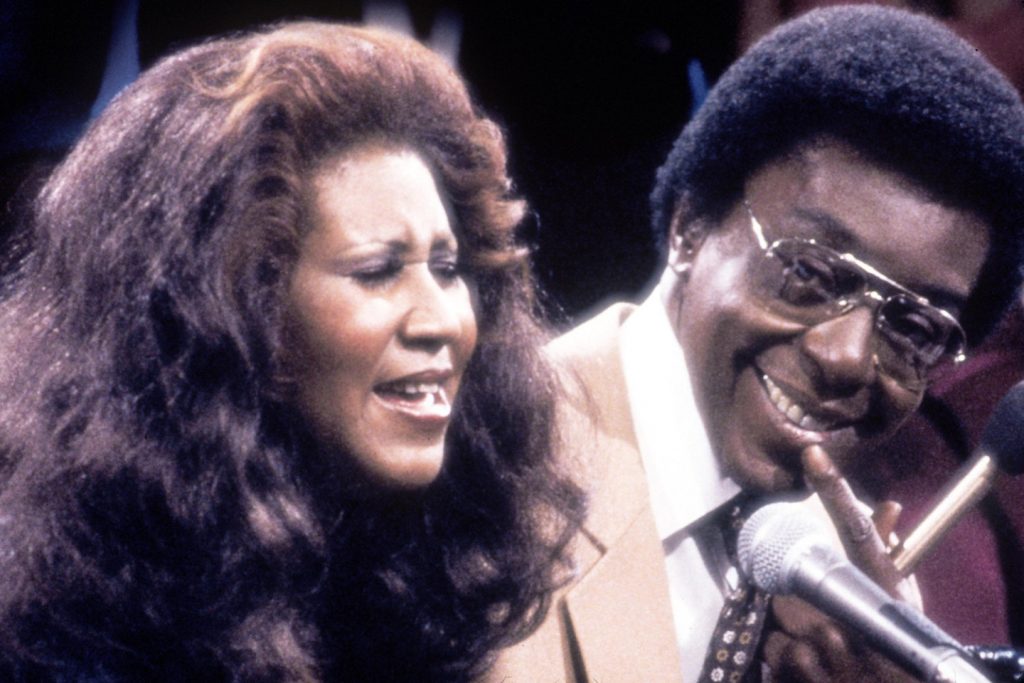
I will be completely honest: I have been guilty in not always allowing persons of color their opportunity to speak their truth to power, sometimes allowing my own form of socialist ideals believe they were always universal. With that in mind, this program isn’t offered to free myself from blame. I have, however, recruited Ronald E. Smith, who is often referred to as “Baby Boy” on the website this program originates from and on many of the design projects I produce.
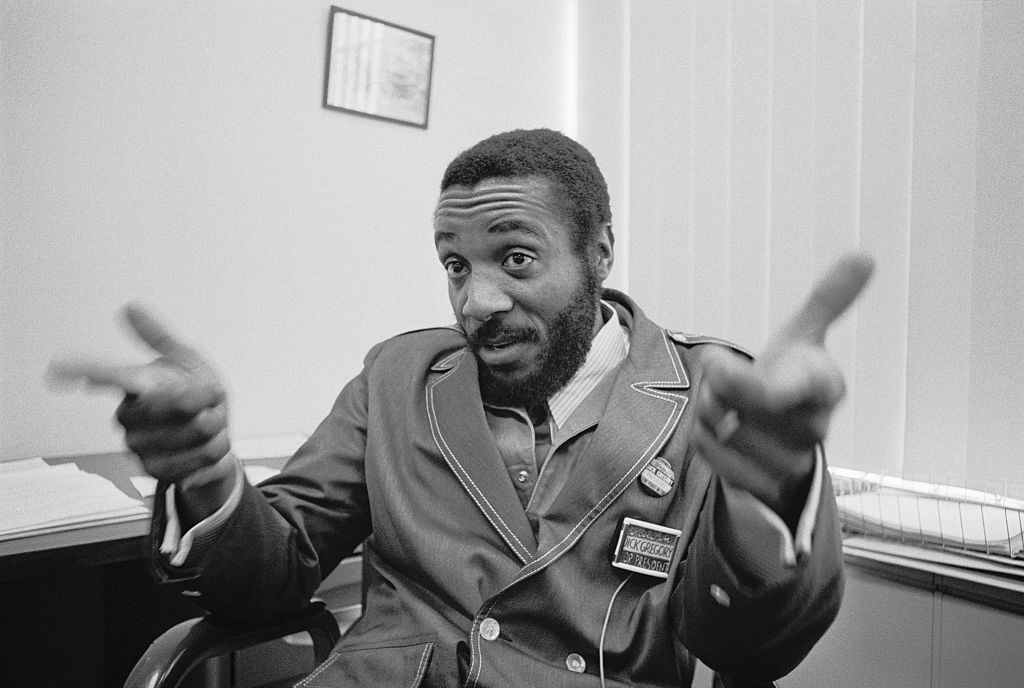
Mr. Smith is Black, Hispanic and Native American. He is also an Air Force veteran, a visual artist, gay, the grandson of slaves and 73. What I am choosing to do is what I hope that other white people do: listen to people of color and allow them to tell their stories.
“I just want to let you know, we are somebody!”
Pop Staples, live on stage at Wattstax, 1972.
I have had a great deal of requests to do at least an episode like this. Ron has been asking for programs like this for a while, which are expanded versions of shows I created when I was privately producing these programs several years ago. I had originally planned on broadcasting them in the fall, closer to the election.
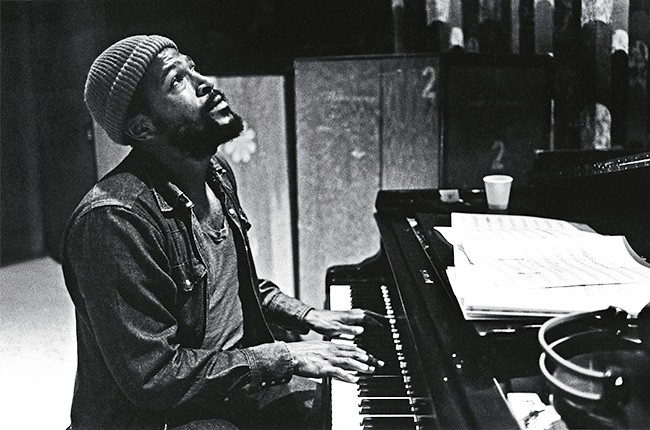
However, after hearing so many people reveal online that state they didn’t realize how bad people of color were actually being treated and the issues surrounding that treatment had been going on for years, know that with this trilogy I call complete and utter BS.
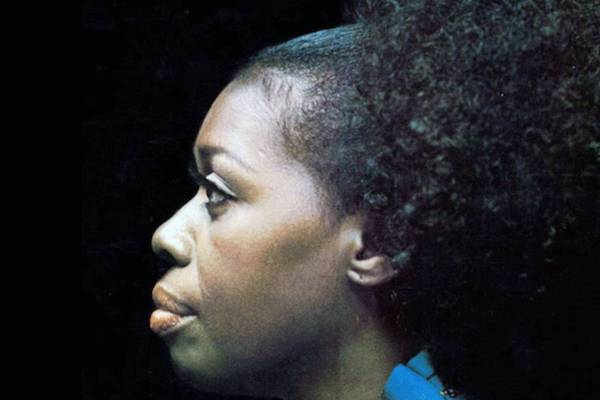
Welcome to the internet: where you have access to all sorts of information, also with the means and ways around hearing what the truth has always been or believing it wasn’t real in the first place. The choice is yours, but understand this: the truth is now knocking at your door. I hope you open it and let it in.
First Part
- (For God’s Sake) Give More Power To The People, The Chi-Lites, 1973.
- Inner City Blues (Make Me Wanna Holler), Marvin Gaye, 1971
- Give A Damn, The Staples Singers, 1970
- Niggers Vs. The Police, Richard Pryor, 1974
- Free Bobby Now, The Lumpen, 1970
- Stop The War Now, Edwin Starr, 1970
Second Part
- We’re A Winner, The Impressions, 1967
- Am I Black Enough For You?, Billy Paul, 1972
- Black Power, Dick Gregory, 1968
Third Part
- The Revolution Will Not Be Televised, Gil Scott-Heron, 1971
- Home Is Where The Hatred Is, Esther Phillips, 1972
- Young, Gifted And Black, Aretha Franklin, 1972
- Mississippi Goddam, 1964, Nina Simone
Finale
- Slippin’ Into Darkness, WAR, 1971
Love to you all.
Ben “Daddy Ben Bear” Brown Jr.
Host, Producer, Webmaster, Audio Engineer, Researcher and Writer
“Copyright Disclaimer Under Section 107 of the Copyright Act 1976, allowance is made for ‘fair use’ for purposes such as criticism, comment, news reporting, teaching, scholarship, and research. Fair use is a use permitted by copyright statute that might otherwise be infringing. Non-profit, educational or personal use tips the balance in favor of fair use.”
